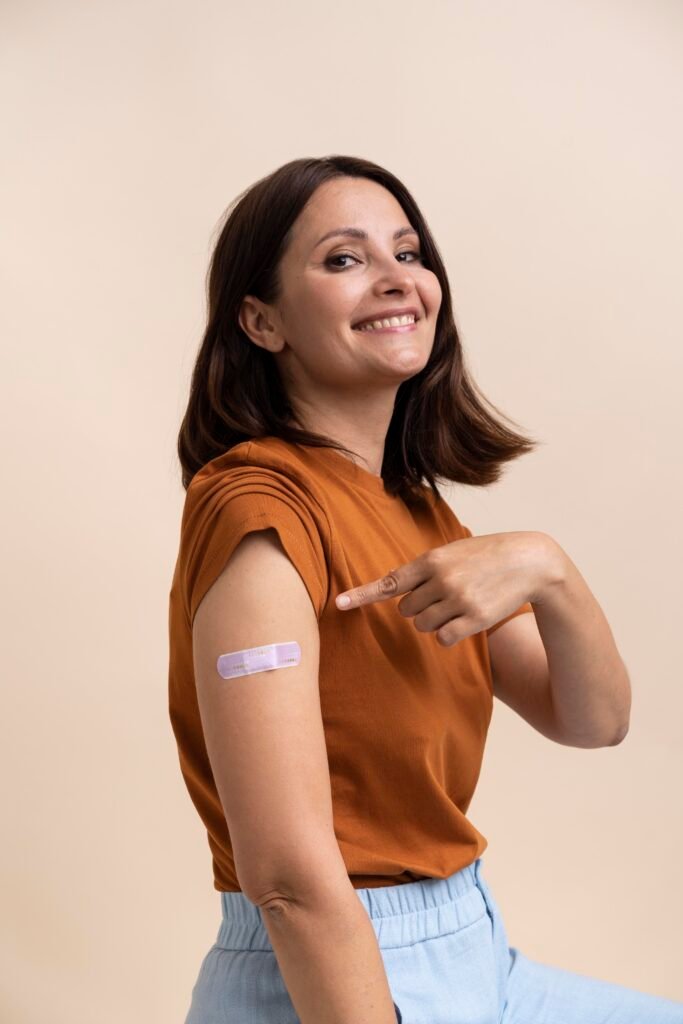HPV Vaccination
Your Best Protection Against
Cancer-Causing Virus
The Human Papillomavirus (HPV) vaccine is a proven and highly effective preventive measure against infections caused by HPV. This virus is linked to a range of health issues, including genital warts and cancers of the cervix, vagina, anus, throat, and lips.
The Centers for Disease Control and Prevention (CDC) recommends that HPV vaccination begin at ages 11 or 12, though it can be started as early as age 9. Individuals up to age 26 who were not vaccinated earlier are also encouraged to receive the vaccine.
HPV affects both men and women and can lead to severe health complications or even death. The vaccine significantly reduces the risk of anogenital cancers and genital warts in all genders. Today, the HPV vaccine stands as one of the most effective vaccines available in the fight against cancer-causing viruses.
HPV Vaccine: Number of Doses and Timing
Ages 9–14 Years
Ages 15–26 Years
What Are the Benefits of the HPV Vaccine?
The HPV vaccine significantly reduces the risk of developing HPV-related genital warts and cancers for anyone who may become sexually active in the future.
Introduced in 2006 for individuals assigned female at birth (AFAB), the vaccine was primarily aimed at preventing cervical cancer. Since then, cervical cancer rates have steadily declined, and HPV infections linked to cancer and genital warts have dropped by over 80%.
The best defense against HPV—for people of all genders—is to get vaccinated before becoming sexually active.
In conclusion, the HPV vaccine is one of the most powerful tools we have in the fight against cervical and other HPV-related cancers.
✔️ If you’re a parent or guardian, speak with your doctor about vaccinating your child.
✔️ If you’re 45 or younger and haven’t received the vaccine or completed the full series, ask your healthcare provider if it’s still right for you.

Frequently Asked Questions
Should I Get the HPV Vaccine If I’ve Already Been Infected?
It depends on your sexual history and exposure to the virus. While the vaccine won’t treat an existing HPV infection or protect against the specific strain you’re already infected with, it can still protect you from other high-risk HPV strains you haven’t encountered yet.
If you’ve likely been exposed to multiple strains, the benefit may be limited—but not entirely lost.
✅ The best step is to discuss your individual case with your doctor to determine if the vaccine is still a good option for you.
Can I Get the HPV Vaccine at Any Age?
The HPV vaccine is generally recommended up to age 45, depending on your sexual history and previous exposure to the virus.
The ideal time to get vaccinated is around ages 11 or 12, before becoming sexually active, when the immune response to the vaccine is strongest. However, children as young as 9 can safely receive the vaccine.
If you’re older and haven’t been vaccinated, speak with your doctor to see if the vaccine is still beneficial for you.
Do I Still Need Pap Tests After Getting the HPV Vaccine?
Absolutely, yes. Even if you’ve received the HPV vaccine, regular Pap tests and HPV screenings are still important.
While the vaccine offers strong protection against many high-risk HPV strains, it does not cover all cancer-causing types. Routine screening helps detect any early changes in cervical cells, ensuring timely treatment if needed.
Always follow your doctor’s recommendations for cervical cancer screening, even after vaccination.
Are There Any Side Effects of the HPV Vaccine?
The HPV vaccine is safe and well-tested, but like any vaccine, it may cause mild side effects in some people. Common side effects include:
Pain, redness, or swelling at the injection site
Fatigue or general discomfort
Mild muscle or joint pain
Dizziness or lightheadedness
Low-grade fever
Nausea or vomiting
These symptoms are usually temporary and go away on their own. If you have concerns, speak with your healthcare provider.
